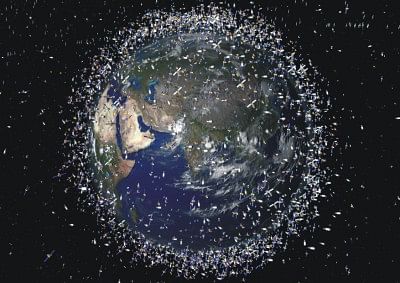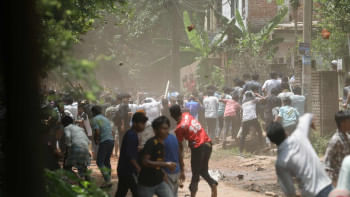<i>Satellite collision raises concern over space traffic, debris </i>

A computer-generated artists impression released by the European Space Agency (ESA) depicts an approximation of 12 000 objects in orbit around the Earth. A communications satellite belonging to US company Iridium has collided with a disused Russian military satellite on February 10. Photo: AFP
An unprecedented collision between a Russian and US satellite will fuel concern over the lack of traffic controls in space and the rising volumes of junk that endanger vital satellites and manned flight.
A disused Russian military satellite, Cosmos 2251, collided on Tuesday with a US communications satellite owned by the Iridium company, some 800 kilometres (500 miles) above the Earth, Russian officials said.
The incident raises grave questions over how it was allowed to happen and what will become of the cloud of orbital debris, which adds to one of the biggest headaches in space, experts say.
Philippe Goudy, deputy director of France's space centre in Toulouse, explained that more than 50 years after the start of the space age there is still no globally recognised arrangements for orbital tracks, as there are flight paths for aircraft.
"The US army and Nasa have radars that can track satellites and the biggest debris, measuring more than 10 centimetres (four inches) across," he told AFP.

 For all latest news, follow The Daily Star's Google News channel.
For all latest news, follow The Daily Star's Google News channel. 



Comments